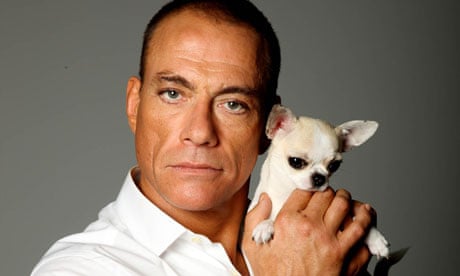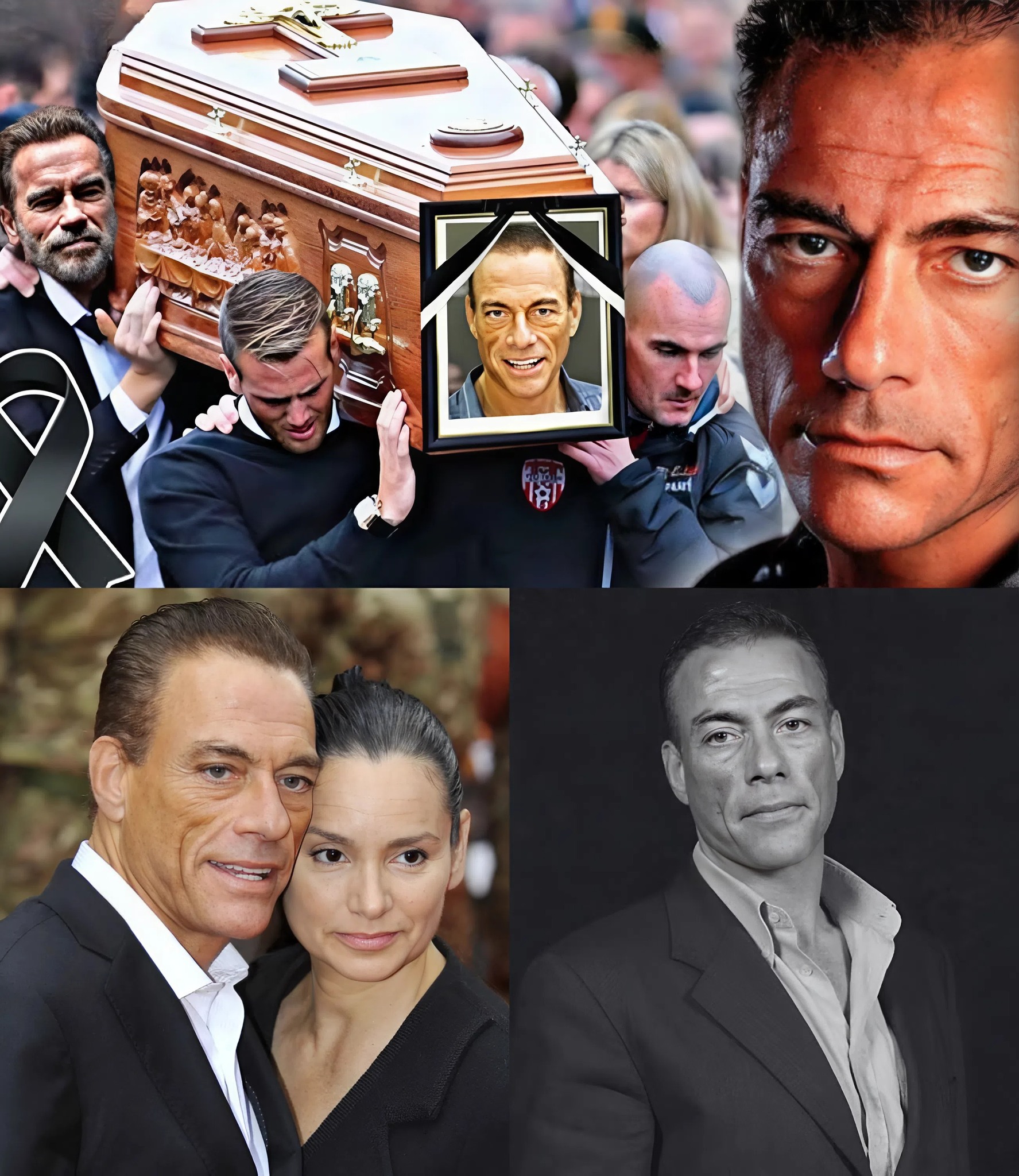Hollywood is no stranger to tragedy, yet there are moments when the loss feels far heavier than just another name in the headlines. Today, the world is mourning Jean-Claude Van Damme, a man whose very existence redefined the image of the modern action hero. The shocking confirmation of his death following a filming accident has ignited an avalanche of grief, disbelief, and reflection—not only on the life he lived but also on what his loss represents for cinema and culture itself.
A Fatal Irony: The Stuntman Who Defied Death—Until He Couldn’t
The earliest reports suggest that the accident occurred during the filming of a high-risk stunt sequence, something Van Damme had always insisted on performing himself. Unlike many modern actors who rely on stunt doubles and digital effects, Van Damme carried an old-school mentality: if the audience was going to believe in his character, they had to believe in him.

This insistence was part of his mystique. He didn’t just play a fighter—he was one. Audiences who grew up watching him in Bloodsport, Kickboxer, and Lionheart knew they weren’t witnessing green-screen illusions. They were watching a man who had trained his body to perfection, a martial artist who treated the set like an arena.
And yet, it is precisely this devotion to authenticity—the very quality that made him a legend—that has now become the cruel irony of his passing. His career was built on the idea that he could survive anything; his death is a painful reminder that even icons are fragile when confronted with reality.
A Star Who Transcended Borders
Born Jean-Claude Camille François Van Varenberg in Brussels, he was far from the Hollywood prototype. He didn’t come from privilege, nor did he have the backing of powerful studios at the start. What he had was discipline, martial arts mastery, and an unshakable belief that he could conquer the impossible.
Van Damme carved a path from Europe to Hollywood during the late 1980s—a time when martial arts cinema was still seen as niche and secondary. Alongside contemporaries like Jackie Chan and Steven Seagal, he helped popularize the genre for mainstream Western audiences. But unlike Seagal’s stoicism or Chan’s comedy, Van Damme offered something unique: raw intensity wrapped in charisma, a mix of ballet-like athleticism and hard-edged toughness.
He was not just an actor; he was a cultural export who bridged continents. In America, he was the foreign underdog who defeated the system. In Asia, he was a Western student who gave respect to martial arts traditions. In Europe, he was a hometown hero who proved that dreams had no borders.

The Human Behind the Legend
While millions admired his cinematic heroism, Van Damme’s personal life revealed the struggles of a man constantly at war with himself. His career soared with hits like Universal Soldier and Timecop, yet he also endured financial troubles, failed marriages, and well-documented battles with mental health and substance abuse.
And it was precisely these struggles that made him beloved. Unlike the untouchable Hollywood elite, Van Damme admitted vulnerability. He confessed to depression, to mistakes, to brokenness. In doing so, he became more than an action figure—he became a man fans could relate to. His resilience in bouncing back from setbacks mirrored the resilience of his characters on screen.
The Cultural Void Left Behind
The death of Jean-Claude Van Damme is not merely the loss of an actor—it is the fading of a cinematic archetype. In an era where CGI now dominates action films, Van Damme represented authenticity. His kicks, his splits, his sweat, and his bruises were real. His fight sequences weren’t generated by algorithms or green screens—they were born out of discipline and decades of martial arts mastery.
His passing also marks a symbolic shift for Hollywood. The icons of the ’80s and ’90s action golden age—Schwarzenegger, Stallone, Willis, Norris, Seagal—are aging, and with each loss, the industry drifts further from the raw, physical, risk-filled filmmaking that once defined it. Van Damme’s death isn’t just a personal tragedy; it is an era’s obituary.
The Global Grief
From Los Angeles to Brussels, from Hong Kong to São Paulo, the mourning has been universal. In Hollywood, colleagues remember him as relentless but kind—a man who pushed himself harder than anyone else on set but never forgot to uplift those around him. Martial arts communities across the globe honor him as a pioneer who proved that cinema could respect the traditions of combat while entertaining mass audiences.
Social media feeds have turned into digital shrines, flooded with clips of his legendary fight scenes, inspirational interviews, and even humorous moments from his later career. Hashtags like #RIPVanDamme and #MusclesFromBrussels trend worldwide, a testament to the breadth of his impact.

What Comes Next?
As investigations continue into the details of the accident, questions remain. Could it have been prevented? Did the industry push him, even in his later years, to perform beyond safe limits because fans expected nothing less? Did his own perfectionism and desire to remain authentic play a role in this tragedy?
These questions are not just about Van Damme—they touch the broader issue of how far Hollywood asks its stars to go in pursuit of “realism.” His death may well reignite debates over stunt safety, overreliance on aging actors for dangerous scenes, and the blurred line between dedication and self-destruction.
A Legend, Immortalized
Though his life has ended, Jean-Claude Van Damme’s presence is far from gone. His films will continue to be rediscovered by new generations, his kicks replayed in gyms and fight schools, his philosophy echoed in the determination of those who refuse to quit.
In the end, perhaps the best way to honor Van Damme is not in mourning his fall but in remembering the way he lived—fearlessly, unapologetically, and with a passion that left audiences believing in the impossible.
Hollywood may never see another like him. And maybe that’s the true legacy of Jean-Claude Van Damme: that some heroes can’t be replaced, only remembered.